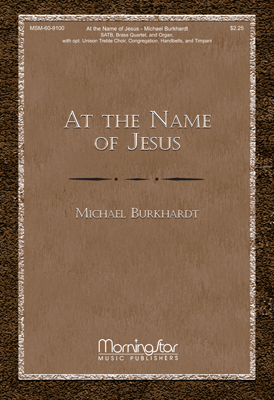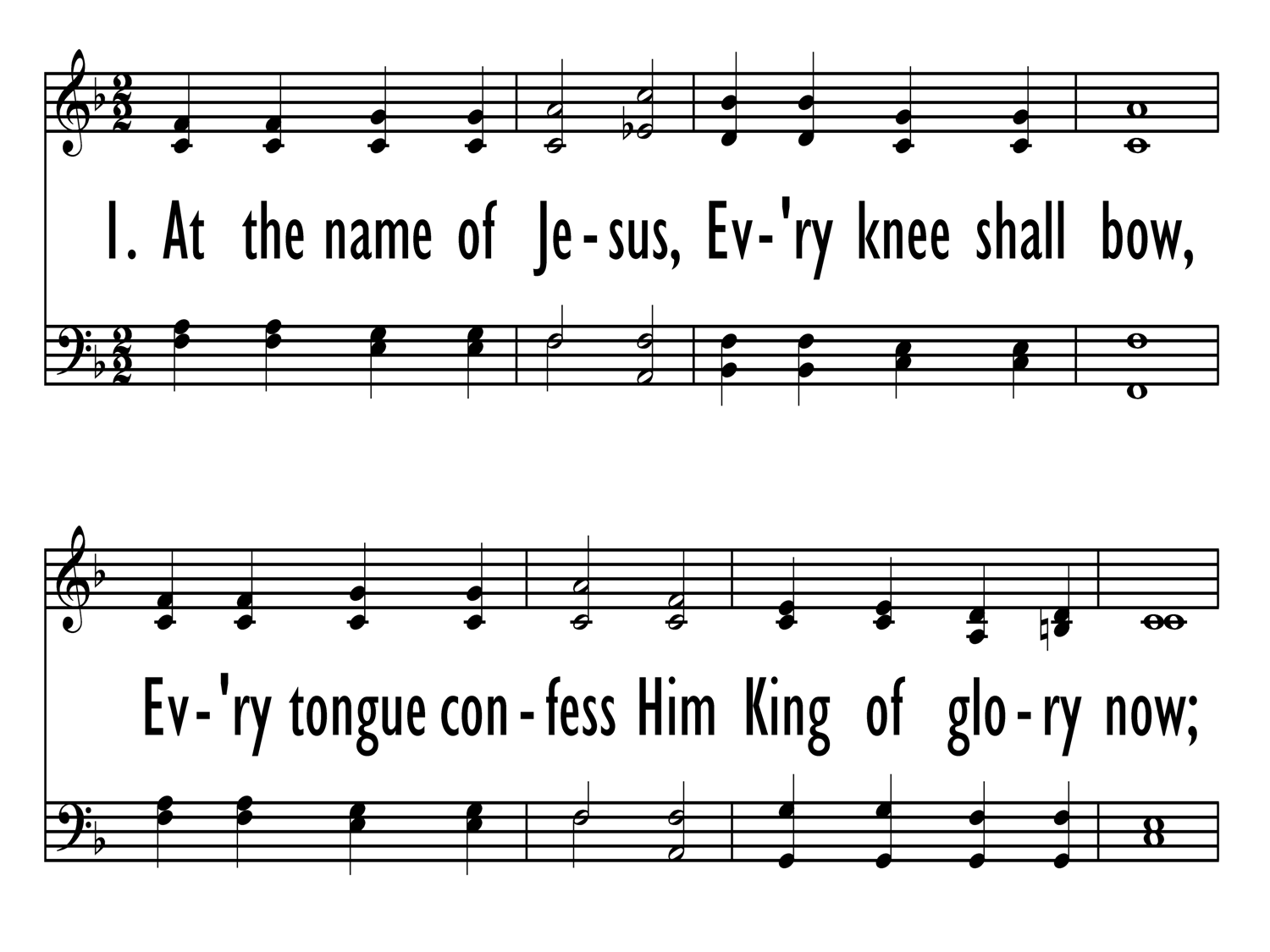- |
User Links
At the Name of Jesus (Philippians 2:5-11)
Hymn Information
- First Line
- At the name of Jesus
- Author
- Caroline M. Noel (1870, alt.)
- Tune Name
- KING'S WESTON
- Composer
- Ralph Vaughan Williams, 1872-1958
- Tune Source
- <cite>Enlarged Songs of Praise</cite>, 1931
- Topic
- Church Year: Ascension · Church Year: Christ the King · Powers of Darkness · Jesus Christ: King · Jesus Christ: Lord · Jesus Christ: Name of · Jesus Christ: Reign · Jesus Christ: Second Coming · Submission
Copyright Information
- Text Copyright
- Public Domain
- Tune Copyright
- Reproduced by permission of Oxford University Press
- Reprint/Projection Information
- Words: The Words are in the Public Domain; you do not need permission to project or reprint the Words.
- Music: Permitted with a license from CCLI.com or from OneLicense.net. If you do not own one of these licenses, please contact the copyright holder for permission.
Full Text
Scripture References
Thematically related:
- st. 1 = ·
- st. 2 =
- st. 3 =
- st. 6 =
Further Reflections on Scripture References
The text is based on the confession of faith that Paul quotes in Philippians 2:6-11, which may well have been an early Christian hymn. Stanza 1 announces the triumph of the ascended Christ to whom "every knee should bow" (Phil. 2: 10). In stanza 2 Christ is the "mighty Word" (see John 1:1-4) through whom "creation sprang at once to sight." Stanzas 3 and 4 look back to Christ's humiliation, death, resurrection, and ascension (Phil. 2:6-9). Stanza 5 is an encouragement for submission to Christ, for us to have the "mind of Christ," and stanza 6 looks forward to Christ's return as "King of glory." The text is not only concerned with the name 'Jesus," whose saving work it confesses, but also with the glory and majesty that attends "the name of Jesus."
Psalter Hymnal Handbook
Confessions and Statements of Faith References
Further Reflections on Confessions and Statements of Faith References
The confessions make it clear that the ascension of Christ opened the door to the rule of his kingdom. This fact is comforting to those who love him and is a fearful threat to those who despise him. The response therefore is praise and adoration from people of faith, and resistance from those who reject him.
Our World Belongs to God, paragraph 27 affirms “All authority, glory and sovereign power are given to him,” and reaffirms it in paragraph 43: “Jesus Christ rules over all.”
Consider the clear affirmation made in Heidelberg Catechism, Lord’s Day 19, Question and Answer 50: “Christ ascended to heaven to show there that he is the head of his church, the one through whom the Father rules all things.”
It is no wonder that those who despise him join together to conspire against him, for Christ’s aim as Lord is to “destroy the devil’s work…every force which revolts against you and every conspiracy against your holy word” (Heidelberg Catechism, Lord’s Day 48, Question and Answer 123).
At the Name of Jesus (Philippians 2:5-11)
Call to Worship
Confession
Assurance
Blessing/Benediction
Additional Prayers
At the Name of Jesus (Philippians 2:5-11)
Tune Information
- Name
- KING'S WESTON
- Key
- d minor
- Meter
- 6.5.6.5 D


 My Starred Hymns
My Starred Hymns







